
By Jana Monji, AsAmNews Contributor
Want to support indie cinemas and watch a tale of the Wild West that portrays one woman’s gutsy fight out of slavery and into the history books?
You don’t even have to leave your house or drive to some faraway city. The film, Thousand Pieces of Gold, won high praise for Rosalind Chao’s performance and biopic’s subject, Polly Bemis. For a small fee, you can stream it now until May 7, 2020.
In 1991, critic Roger Ebert described Chao as “an actress of great character and presence,” and noted that her performance in Thousand Pieces of Gold was “a wonder–the sort that, in a conventional Hollywood epic, would inspire Oscar speculation.”
There was, sadly, no Oscar in the wind for Chao, who considers the film ahead of its time. It was about a real historical woman, Polly Bemis (1853-1933). Chao said, “She was a survivor. The fact that we don’t know more about her is still surprising to me.” In 1987, the Bemis cabin where she lived was dedicated with then-governor, Cecil Andrus saying, “The history of Polly Bemis is a great part of the legacy of central Idaho. She is the foremost pioneer on the rugged Salmon River.” The cabin, known as the Polly Bemis House, is listed on the National Register of Historic Places and is a museum.
LATEST STORIES
Chao remembers that she was “a little bit obsessed with that time period, the Gold Rush when I was in elementary school through high school” because “we really didn’t get to hear much about the Chinese.” She had read the book, but her chance at the role came because of another production. “I happened to do a small play at the Mark Taper Forum (Chao was in both The Wash and Green Card in the mid-1980s and the latter went to New York in 1988),” she recalled. The film’s casting director, Laura Kennedy, saw her performance and put her up for the role.
The film made its world premiere just before Asian American Pacific Islander Heritage Month on April 30, 1990 at the San Francisco International Film Festival. Based on a book of the same name by Ruthanne Lum McCunn, the screenplay was written by Anne Makepeace and directed by Nancy Kelly.
In the film, Lalu is sold by her father to Chinese slavers who ship her to the American West where a wife trader, Jim (Dennis Dun), takes her and sells her to a Chinese merchant, Hong King (Michael Paul Chan). He runs a saloon in an Idaho mining town. Lalu is renamed Polly and resists being forced into prostitution. Eventually, she is won in a high stakes poker game, by Hong King’s White partner, Charlie Bemis (Chris Cooper). She eventually marries him and lives the rest of her life in Idaho, never returning to China.
Since the publication of the book, Polly became a legend. Chao even heard there was a political fight over which side of the river she’d be buried on, with Polly buried on one side and her husband on the other. Still, most people have never heard of Polly Bemis.
According to Chao, despite the praise the film won, including a three out of four star review from Ebert, offers didn’t pour in for Kelly. These days, women directors and screenwriters are the hot topic and focus of film festivals with festivals like AFI FEST proudly proclaiming their male to female ratio.

At the time, Chao remembers feeling “It was disappointing that we didn’t get a little more attention. I felt bad for the filmmakers.” The budget was relatively low, only one million dollars. “Basically, everybody did it for love.”
Not everyone was a fan of the film. Ebert noted that Thousand Pieces “paints an overwhelmingly negative portrait of Chinese men” but had more positive things to say about another one of Chao’s films, the 1993, The Joy Luck Club which he wrote was “like a flowering of talent that has been waiting so long to be celebrated,” but was also “one of the most touching and moving of the year’s films.” However, some writers, such as Allen C. Soong, writing for The Harvard Crimson wrote, “the male characters are merely additions to the long list of negative images of Asian men in our culture.” More recently, Inkoo Kang wrote in Slate: “Where I do find myself short on patience is with critics who say The Joy Luck Club is Exhibit A for Asian American misandry.”
In The Joy Luck Club Chao played the daughter Rose, who marries a white man, Ted Jordan (Andrew McCarthy) whom she met in college. In real life, Chao married early, first meeting her husband, Simon Templeman, at the Mark Taper.
While she laments that “there is no breadth” in the Asian American history presented in Southern California public schools with Chinese Americans only appearing on a single page reading something like “and then the Chinese Americans helped build the railroads alongside the Irish Americans,” but some things have changed. “Freshman year at my kids’ high school, The Joy Luck Club was required reading.”
That led to a horrifying moment for her son. “My son’s teacher asked me to come to speak to them.” While she says, “I’m glad I didn’t do the nudity that was originally requested,” she realizes that there’s a time period when parents are just embarrassing to their kids. After the first incident, she decided, “I didn’t want to crowd their space.” So when seven years later, her daughter’s class was viewing the movie, “there was no talk of me going in.”

Despite being in a high profile movie like The Joy Luck Club and TV series like MASH, Star Trek: The Next Generation and Star Trek: Deep Space Nine, Chao made some choices. “I’m very dumb about all this,” she confessed. “My parents were such hardworking immigrants, I felt like they never got to live.” Her parents owned a restaurant near Disneyland and her parents worked from early morning to late at night. Chao was also working there. As a result, she felt, “It was really important to me to have a family and have a life.”
Chao explained, “I fell in love young and got married right after Thousand Pieces of Gold. I had a baby just before my makeup test for The Joy Luck Club.” Even her first role in the Star Trek franchise took a backseat to her family. “I think I wasn’t in the pilot because I gave birth late.”
Now she feels she was not “as appreciative as I should have been” because “every time you get an opportunity to do what you love, it is a huge gift.” Still, she remembers, “Back then, I thought I didn’t want my life to just be about work. I wanted a real life.” Neither of her kids are into Star Trek. She recalled, with a laugh, “My son came on the set when he was at about one and a half or two and he freaked out” after he saw one of the Star Trek aliens in heavy makeup.
Of course, in these COVID-19 times, one doesn’t need any makeup at all to be treated like an alien of the terrestrial sort. While Chao says her family are “trying to be good citizens, wearing our masks” and that she does worry about her husband because he’s a bit older than her, she said the day that Trump first called it the Chinese virus, she and her husband were at the local farmers market. This was before the rest-in-place mandates, but social distancing was already recommended. She was standing with her husband when “some guy hollers and points at me, saying, ‘You stay six feet away from people.'” The grocer was Asian American, too, and she shared a look with him that said, “This is what I’ve been experiencing, too.” What Chao found most disappointing is “not one person spoke up.”
Since Trump came into office there have been other incidents. She remember seeing a woman standing in an open parking spot. Chao asked her if she could park there, but then parked in another space when the woman told Chao she was saving it for someone. “When I got out of my car, she hollered, ‘Because I’m from this country, bitch.’ I just looked at her.” Of course, she didn’t think of a good response until 10 minutes later.
Chao also said, “I’ve had people pull their eyes the way they used to on the school grounds since Trump came into office.” Of anti-Asian racism she said, “It’s probably been there, but now people feel they have a license to express it.”
The most overt case of racism happened elsewhere–in New Zealand at a coffee shop she went to daily. “I remember this one guy I thought was so rude to me, and I just chose to ignore it.” There came one day, when she couldn’t ignore it. “When I came in, he told me there were no spots in front and that I had to wait for a seat in the back. There were loads of spots in front. When he went away, I just sat down in the front. He came over and said, ‘You can”t sit here.’ I started to get up then I asked one of the other ladies, ‘Wait a second, did he tell you you couldn’t sit here?’ She said, ‘No.’ I said, ‘Why am I not allowed to sit here? She said, ‘I don’t know.’ Wouldn’t it have been nice if that lady had said, ‘Um you said I can sit here; why can’t she sit here?'”
While Chao feels, “I never want to put somebody down for hanging their opinions out,” Andrew Yang’s essay responding to COVID-19 anti-Asian sentiment seems “more like how my parents felt, to be as American as you can” because you need to ask yourself “how can you fix this.” For Chao, “we’re Americans; what do we have to do? Wear red, white and blue and listen to country music?”
While she found John Cho’s opinion piece in the LA Times wonderful, Chao unlike Cho was born here. “I was born in this country and yet I still feel like a house guest. If this isn’t home, then what it?”
Still she feels optimistic. She doesn’t see the progress made with on TV or the movies stopping because more than a few have made money and been successful. She’d love to see more portrayals where the ethnicity isn’t a plot point and more people speaking up and speaking out, not just for themselves, but for others.
Thousand Pieces of Gold is presented by distributor Kino Lorber in a 4K restoration as a means of supporting small independent cinemas around the country. For a $12 fee, you get five days to watch the movie during its limited run (April 24 to May 7) as part of The Autry Museum of the American West.
AsAmNews has Asian America in its heart. We’re an all-volunteer effort of dedicated staff and interns. Check out our new Instagram account. Go to our Twitter feed and Facebook page for more content. Please consider interning, joining our staff, or submitting a story.


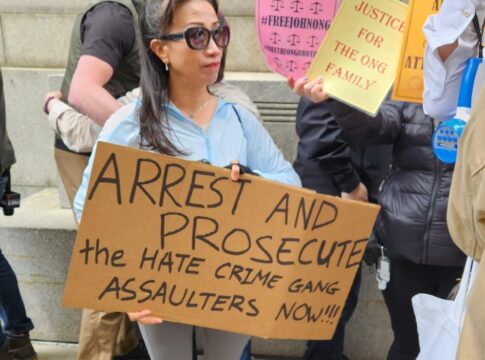
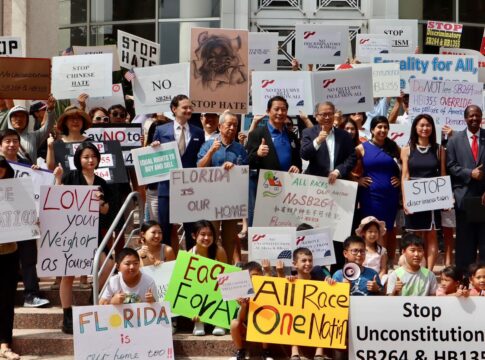
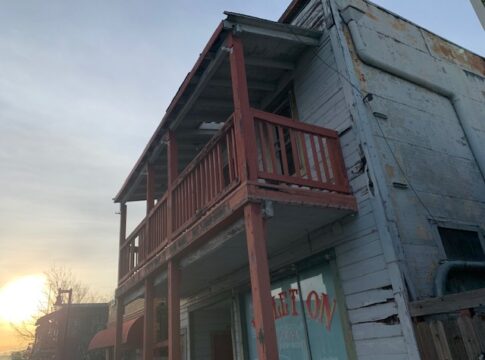
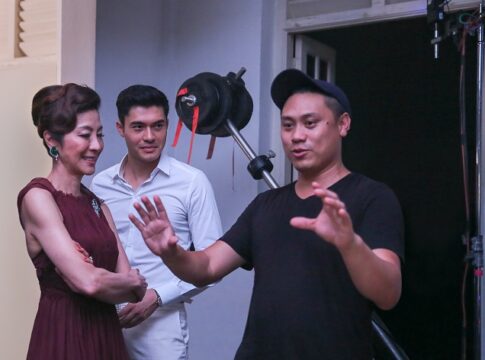
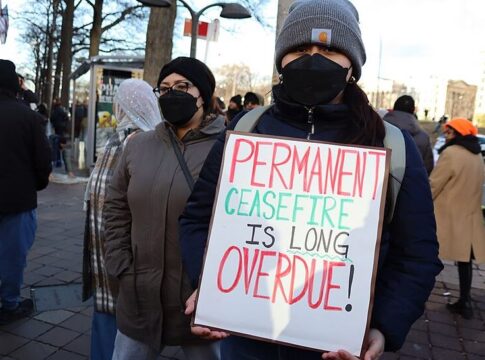


RE: Roslind Chao’s 1991 film, Thousand Pieces of Gold, available for streaming for limited time. She talks COVID-19 racism: Yup, another movie with extremely targeted and gendered racism against Asian men. If it was one movie in a sea of films offering realistic, varied, and positive portrayal of Asian and Chinese men and women, then it and Joy Luck Club wouldn’t have been an issue. But that was not the case and most Asian women seemed to have no problem with the damage it did.
As for Inkoo Kang’s entitled, bad faith demand that Asians (Asian men in particular) forgives the Joy Luck Club. No. That movie and the assholes who continue to make excuses for it are not entitled to our forgiveness or goodwill, especially since they have yet to sincerely apologize and make atonement for the absolutely disgustingly lopsided portrayal of Asian/Chinese men while also force-feeding this BS into the minds of young and impressionable Asian children for multiple generations by making it required reading in school. Inkoo Kang is not fit to speak for the entire Asian community because she can’t see the humanity in a full half of that community. She, as with most Asians in mainstream media, was appointed by MSM white liberals to echo their sentiments and views on the Asian community. We, especially we Asian men, did not choose her.
If you lack the capacity to see the full humanity of Asian men, then that’s YOUR problem. You’ve made your choice. And now we’re making ours.
RE: Rosalind Chao’s film Thousand Pieces of Gold available for streaming for limited time. She talks COVID-19 racism: One clarification: Chao wasn’t in the pilot for Deep Space Nine because of her birthing schedule, she was playing a character previously established in TNG.